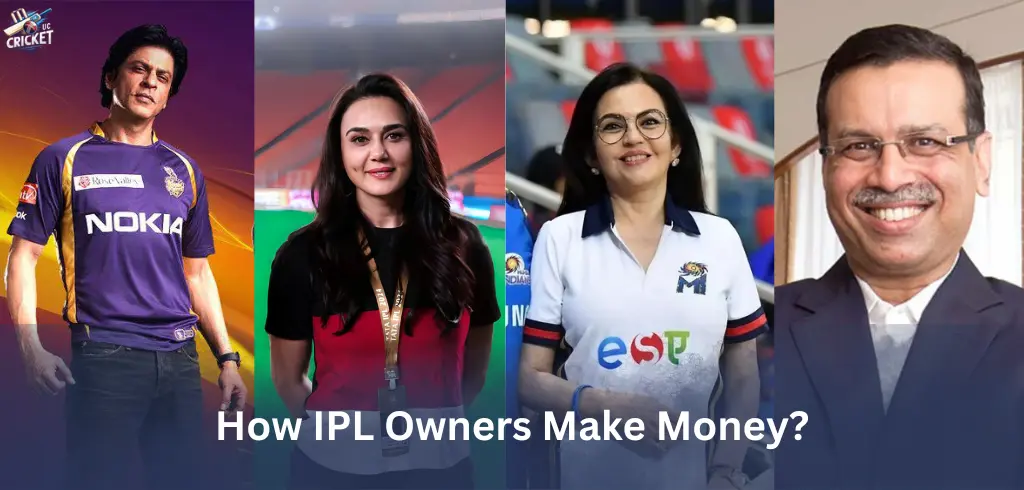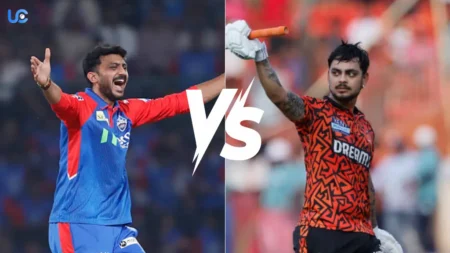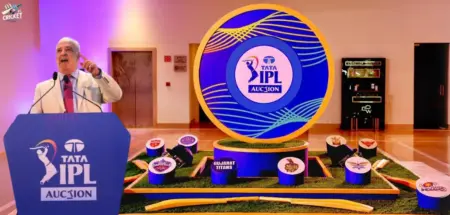The biggest cricket tournament in the world is, indeed, not only about the game but also the business model that comes along with it. It is the perfect blend of sports, entertainment, and marketing that brings in huge profits for the owners of the teams. Here is how IPL team owners earn money and why owning a team can be so profitable.
1. Media Rights: Biggest Money Maker
The major income stream of IPL teams comes in terms of rights of media. Board of Control for Cricket in India or BCCI sells the rights to TV and online platforms for broadcasting matches; it splits the revenue earned from the deals with the teams.
The media rights have been sold between 2023 and 2027 for a whopping sum of INR 48,390 crores. Jio Star has the TV rights, while Viacom18 has the digital streaming rights. It is being reported that media rights form around 60-70% of a team’s income because broadcasters pay big dollars to telecast IPL 2026 matches, knowing well that these will attract huge audiences throughout the world.
2. Sponsorships: Sponsored by Big Brands
Sponsorships play a huge role in how IPL teams make money. Teams team up with brands who pay to have their logos on jerseys, caps, and even the stadium. Each franchise has a set of primary sponsors, sponsors for the jerseys, and sleeve sponsors who market products during the matches and pay well.
For example, the brands sponsoring Chennai Super Kings (CSK) include Etihad Airways and Dream11. Teams also endorse brands on social media as a separate source of income.
3. Merchandising: Income from Team Gear Sales
The best way through which IPL teams can make money is through merchandising. Supporters like to purchase official jerseys, caps, and all other team accessories. They sell their products online, in stadiums, and in retail outlets to reap the profit from the love of a fan for their favorite teams.
Indian sports merchandise markets are growing fast, and then teams such as Mumbai Indians and the Kolkata Knight Riders capitalize on that by selling everything from jersey replicas to wristbands.
Read Also:- Highest Powerplay Scores in the IPL (Top 10)
4. Ticket Sales: Earnings from Sold-Out Stadiums
Ticket sales are one of the direct sources of revenue for the IPL teams. Every team will have at least seven matches as home matches, for which they collect revenue from the tickets sold. Though ticket sales are not more than 10-15% of the total revenue, it is significant. In order to enjoy the fullest profit during the super matches, dynamic pricing is used where the home team will get a share from the ticket-selling revenue.
5. Brand Value: Building Reputation
A team brand value of a team will directly impact its ability to generate money. A team with big superstars like Virat Kohli, MS Dhoni, and Rohit Sharma has an extra advantage because they have massive recognition and thus more sponsorships and investors.
Strong brand values seem to be there with Mumbai Indians and Chennai Super Kings because they have won the IPL several times and have humongous fan following. Further, the Bollywood stars such as Shah Rukh Khan of KKR and Preity Zinta of Punjab Kings enhance the brand value for their respective teams, thus making them attractive to the sponsors.
6. Prize Money: Reward for the Winners
Prize money is the other source of income for teams. The winning team of IPL receives INR 20 crores, while the runners-up receive INR 13 crores. A significant amount of prize money goes into the bank accounts of the owners and players, but in general, most of it is taken by the owners.
7. Selling Stake: Profiting from Investments
Some team owners make money by selling stakes in their teams. As the value of a team increases, owners can sell a portion of ownership at a higher price than they paid for.
For example, Jindal Steel Works bought a 50% stake in Delhi Capitals, while the original owners earned profit from the transaction. It is also an extremely profitable business when considering the number of years the brand value of the team has been up.
8. Unlisted Shares: Investing in Teams
Some of the teams in IPL have been initiating the sale of unlisted shares. Now, investors and cricket enthusiasts can directly invest in those shares upon the proposal made by the team initiating the same. However, it is a new concept for India, but various European clubs have already welcomed the concept of selling shares.
Sale of shares generates more revenues for the teams which they can use to upgrade facilities and pay the salaries of players.
9. Name Rights: Partnerships with Companies
Teams can sell rights to use their names to sponsors. The Delhi Daredevils, for example, renamed themselves to Delhi Capitals after they were agreed with JSW Group. Teams generate a lot of surplus money from selling name rights, money that could be utilized for paying players and more costs.
10. Media Content & Digital Shows: Profits
Another way a team can earn is by producing their own media content. The digital shows are frequent among some teams, one being KKR’s “Knight Club,” by which they produce content to entertain their followers and gain advertisements. It also earns them additional revenue as the teams aim to reach more fans on platforms like YouTube and social media.
The Price of an IPL Team
Owning an IPL team is not a cheap affair. When the league first started, the teams were sold for between $67 million and $111 million. Now that new teams like Gujarat Titans are being welcomed into the league, they are priced at an even higher price tag. Teams spend on player salaries, management, marketing, and most other expenses, but the strong revenue model helps them recover their investment promptly.
Mumbai Indians and Chennai Super Kings have proven that proper planning can make franchises profitable every year. The investment is hefty, but then the returns are nothing but handsome.
Conclusion: IPL is More Than Just Cricket
This IPL has become an international phenomenon, not only for cricket but also for the winning business model of the league. The league’s lucrative revenue-sharing system combined with sponsorships, media rights, merchandise, and several other income streams converts owning an IPL team into a lucrative business.
Having the capacity to draw big crowds and retain fans, the IPL only grows bigger each year, ensuring that team owners can earn well from their investment. With sponsorship deals to ticket sales, IPL teams have quite a number of ways to generate income, a testament that sports and business can go well together in harmony.




